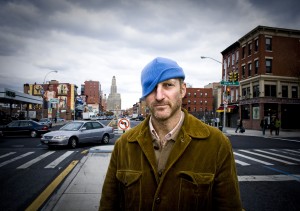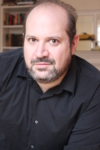
PHOTO CREDIT: Seth Kushner
Last winter, Full Stop introduced “The Situation in American Writing,” a questionnaire adapted from The Partisan Review that asked questions about literature’s responsibility to address seismic changes in culture, the publishing industry, and the political and geopolitical landscape. That questionnaire, which featured responses from Marilynne Robinson, George Saunders, Victor LaValle, T.C. Boyle, Dana Spiotta, and dozens of other writers was illustrative of the concerns and preoccupations that writers carry with them when practicing their craft.
This year we are interested in the situation of writers, rather than writing, in the subjective experience of writing fiction (or in this case, memoir), rather than fiction’s responsibilities to respond to a rapidly changing world. To this end we are interested in examining the trying intellectual, creative, and emotional labor that is often unacknowledged or effaced in the public presentation of writing. What we’re interested in, to put it another way, is pathos.
This year, we’ve crafted a questionnaire asking writers about the effect writing has had on their physical, emotional, and economic health; on the idea of poverty being a precondition for writing well; on what makes writing truthful to one’s self and to readers. Ultimately, we are interested in the consequences of pursuing writing as a vocation.
Jonathan Ames is the author of eight books, including Wake Up, Sir! and The Extra Man, and is the creator of the HBO series “Bored to Death.” He has a new novella, You Were Never Really Here, which can be found here.
How has your decision to write affected your health? Has it had negative effects on your personal life?
I’ve had no ailments specifically related to writing. I mean, my eyes have probably suffered some, but not terribly. I don’t wear glasses, though in restaurants, in dim lighting, I struggle more than I used to. But that’s a princely, pampered trifle of a problem. But that makes sense since I’m a princely pampered trifle of a person, and my restaurant-reading-problem may have more to do with age – 48 and counting – than writing.
Well, my personal life is quite intertwined with my writing life. How could it not be? Almost everyone I know – other than my family – has most likely come into my life because I’m a writer. It has shaped where I lived – what I could afford – and it has shaped my community – other artists and writers, primarily. I live in a ghetto socially – 95% of everyone I interact with is an artist of some kind, which doesn’t give me much sense of the world, I imagine. It’s like being the first George Bush and not knowing how to buy groceries. My whole frame of reference is artists, which means I’m interacting almost entirely with people somewhere on the narcissistic-depressive spectrum or the border-line-hysteric spectrum. Oh, fuck these labels. Everyone I deal with is highly sensitive and somewhat unstable. That can go for the rest of the world, as well. We’re all nuts. Newspapers are simply journals of shame. We are inundated with the misdeeds of others as a warning to not screw up our own lives and hurt others, but we all fail at this.
Wait a second, just glanced at the second part of the question more closely, “negative effects on my personal life.” Well, a negative effect from my writing would be if someone is hurt in some way by what I’ve written, and this has happened and I don’t like it. I don’t like to hurt others. But, unfortunately, it is part of the profession. But that’s the nature of life – no matter what you do, you most likely will hurt someone, unless you live in some kind of lubricated, life-sustaining glass tube with nutrients pumped in.
There is long tradition that links the craft of writing with poverty. Do you think that’s appropriate? Does poverty feel like the most appropriate condition for your practice as a writer?
I imagine it’s linked to poverty because there’s not enough demand for writing and yet everyone wants to be a writer (not everyone, of course, but a lot of people). So, naturally, there’s going to be poverty. Being a writer is like being a cockroach – there’s a lot of competition, though one rarely sees a skinny cockroach.
Anyway, poverty was good for my writing. It motivated me to hustle and whore myself. It was also nerve-wracking. I was broke from age 23 to age 45. That’s not a long time but it felt long. I carried around credit-card debt and school-debt like a goiter. It fluctuated between ten and eighty-thousand dollars for years. I finally paid it off in 2009 when Hollywood, for a little while, took a shine to me. So for nearly half my life I was broke and in debt, and before that I was supported by generous and good lower middle-class parents, which meant I had food, shelter, and second-hand bicycles.
In a rare 1983 interview the enigmatic and often dour Romanian writer Emil Cioran speaks about only reading Nietzsche’s letters because he became concerned with how untruthful Nietzsche’s published works seemed when read against the miserable condition of his day to day existence (isolated, weak, sickly, certainly not characterized by any sense of vigor). Is there any sense in which the truth of one’s condition should be related to the truth of one’s writing, even if in an oblique sense?
He only read the letters? Or, more correctly, to get Nietzschean on you, though I may be muddling things up, he only read the letters after having read both the letters and the books at some point in time . . . ?
I should think that Cioran would be inspired to learn of Nietzsche’s nasty day-to-day life. He could then see Nietzche’s work as aspirational and inspirational. A blue-print for a personal mental utopia, a way out of the pig-sty of life, even if only as a dream. Or he could see that Nietzsche’s philosophies were lousy since they didn’t work in his own life, and so he, Cioran, can stop reading them or worrying about their “truthfulness”.
But why read the letters at all if he now dismissed the philosophies? I guess he enjoyed these tormented letters? Got something out of them? That’s why he read them? Maybe they made him feel less alone with his own struggles. I don’t know. Maybe it’s me that’s muddled . . .
But being empathetic to Cioran, I will venture to say that it is important, perhaps, for philosophers to be living role models for their theories, like Tony Robbins or Warren Buffett or Walt Frazier.
I tried reading Nietzsche in my college days. An arrogant friend considered himself a Nietzschean which seemed, in his mind, to give him license to be rude. Anyway, he kept going on and on about Nietzsche, and it seemed the cool thing, at the time, to read Nietzche, in much the same way, during my college years, it was ‘cool’ to drive a car with a stick shift or eat spicy food.
Well, not being the largest-brained person around, I read about two pages of Nietzsche’s aphorisms and gave up. I did read one aphorism, though, which always stuck with me. It was something about how thinking of suicide was normal, that it was like an aspirin for a troubled mind. Now I’m not sure if it is normal to think of suicide, but all my life, because I’m a pathetic prince-clown of a person, I have had bouts of self-indulgent suicidal ideation. It’s a groove in my mind that I’ve often revisited. Sometimes it’s more pathetic than at other times, which is when it’s a kind of Tom Sawyer funeral-fantasy — I’ll-be-loved-when-I’m-gone kind of thing and thinking, which is maybe a way for my brain to produce feelings of love to get me through my dark, frightening, soft, middle-class nights of despair.
And sometimes the thinking is less pathetic and more of a plan on how to disappear. . . it’s when you hit a wall in your mind, where there seem to be no solutions to the knots we find ourselves in, that the gentlest way for others would be if you were removed, but this is always delusional and ultimately selfish. One has to think of those who would be hurt by your death and so you have to hang in there, pun not intended, not consciously anyway, just came out — hang in there — as I typed. But it’s an interesting language choice because I first became obsessed with suicide when I was a boy and an older boy in our town – my little New Jersey version of Thornton Wilder’s “Our Town” — hung himself. . . Small towns are like big human bodies or families. Tragedies course through everyone. I guess that happens in New York, but it’s always more detached. In a small town you know the people upon whom tragedy is visited and so it touches you deeply.
And there’s something about suicide that’s like a computer virus or a human virus — when you’re exposed to it, it kind of lodges in your mind and never really leaves. And if you’re exposed to it up close, like when a parent does it, then the children of the suicide often have it in their brains in a really difficult way. So I guess we’ve all been exposed on some level to suicide and there’s probably not a person alive who hasn’t for a moment thought of it . . .
Are you envious of other people’s success? If so, are you more envious of people’s success in your field or outside of it? Why?
When I was younger I definitely would have moments of envy. I’d read some writer’s great review in the NY Times or see that they had an ad in the NY Times and I’d feel a kind of pain. And what is that pain? It must be some kind of ego-hunger, like the ego fears that it will never be fed, that all the food is being given to others . . .
But I learned early on that there’s more than enough ego-food for everyone when it comes down to it — reviews, ads, advances, what-have-you, that is if you persevere — and so over time I became mostly inured to stabs of envy. And then I guess I realized that it’s all pretty meaningless and frivolous and ephemeral anyway, and that there’s no reason to envy another person. The cycles of success in publishing are like the seasons — they pass and pass and pass. Also, the main reason not to envy others is that behind the envied person’s mask and behind your projection of what it must be like to have a glowing Kakutani review, the envied person for sure is in a lot of pain, because who isn’t in pain? So what’s to envy, really? I’ll stick with my pain. It’s what I know.
Also, as time went on, I accepted the fact that the things I thought I wanted — that glowing review, that big boasting ad — I didn’t necessarily deserve or warrant or wasn’t my destiny to receive, so I stopped wanting those things . . .
So, to simplify: I have envied others’ successes. But less so as I get older, though it can still happen – the old babyish why-not-me! twinge. As for envying people outside my field, I don’t have that too much. I mean I would like to live in an eco-friendly beach house on a planet that wasn’t being attacked by our flawed, imbalanced ways, but since such a planet doesn’t exist, I can’t really envy the ownership of that beach-house . . .
I might also envy being wealthy enough to have access to a controlled, non-addictive morphine drip. . . But the only thing I’m really envious of is immortality. I’ve said this before, in one form or another, but I wish I could be confused forever. I wish everyone I knew and didn’t know could be confused forever, and that every living thing could live forever and the planet could sustain all this immortality . . . but it can’t . . . and I may have added every living thing and every living person to this envious wish for immortality, but that’s because I didn’t want to seem too grossly selfish by simply wishing immortality for myself and the few hundred people that I know . . .
Aside from writing, do you have any other marketable skills? If so, are you ever tempted to cease writing fiction entirely so you can live a more stable life?
I have no other skills, and I’m not that skilled at writing. I have the grammar of a clever but lazy tenth-grader. Well, I do have one skill that’s fairly marketable. I was a good taxi-driver once. I don’t think I’d like to do it again, but I could. But I wasn’t any more stable when I was working as a taxi-driver. My mind was as wobbly as a lily pad then, and it always has been. And when I did have time-clock jobs — and I had at least two or three dozen such positions — I loathed the life. I hated watching the clock, aching for freedom. Now I have freedom, I’m my own boss, but I’m still watching the clock. What did Eliot say about measuring out one’s life in coffee spoons? I don’t know what my equivalent would be. Maybe it’s all the living I’ve forgotten, all the people I’ve lost, those dead and those still alive. So my life is not measured in coffee spoons but in faces once beloved and now no longer seen.
Anyway, I don’t plan to change professions. I’m fairly close to retirement. At age 48 I’m as close to age 70 as I am to age 26 (when I was a taxi driver after publishing my first novel). So I’m trying to save money now so that as I creep into dementia, if I make it that far, I won’t be a burden to others.
Like with all these questions, I’ve completely lost track of what I was supposed to answer. If I scroll up, which I won’t, it’s something about the stable life, as if the working life would be more stable than the writing life, which is most likely fallacious. The only thing more stable might be the paycheck, but everything else would be just as unstable. People in the dullest, most secure jobs have a lot of instability in their lives. Everyone gets into so much trouble. At least in America, since we have time to get in trouble here. But even in slums in South America and Asia you have time to get into trouble. Who doesn’t have the time to get into trouble? No one. Even workers in rice-fields must, at night, have all sorts of problems with their wives and husbands and children and parents and neighbors, and I equate problems with instability.
Give one example in which you had high hopes for success (artistic, commercial, or otherwise) but had those hopes dashed.
I think with every project we expect something more than what happens. We all love to be disappointed. You can be disappointed by the smallest things — a typo in the first printing of a book, a typo that haunts you and maddens you. The biggest crusher for me was that my second novel, The Extra Man, was rejected by about twenty publishers. I had been certain it was a good book and had devoted nearly five years of desperate living to writing it. They were my brokest, leanest years, which included moving back in with my parents at age 30 after a crack-binge, and so I was devastated when no one wanted the book. Then, months after all the rejections had rolled in, breaking my heart and my fragile ego, one publisher did want the book . . . which doesn’t quite qualify as an answer to this question.
Do you feel like the world owes you a chance to make a living as a writer?
No.
What is the strongest emotional reaction you have ever elicited from a reader, either in your written work or during a reading? What is the strongest emotional reaction you have ever elicited from yourself during the writing process?
Starting to burn out now, have been answering these questions for at least thirty or forty minutes, so I’m not sure if I have much left . . . Anyway, I’ve been fortunate to have many kindly responses to my work which people have shared with me either via email or in person, though I tend to feel detached when I hear these things. I don’t really remember writing any of my books or what’s in them. I change so much all the time — or so I feel — that I don’t quite connect to anything I’ve written or expressed in the past. I see all my past selves as blind, confused idiots, which means that my current self, soon to be a past self, is a blind confused idiot, and so I’m a bit detached when people have been moved by something I wrote, but I’m glad that it meant something to them and I always find it to be generous of the person to share such a thing with me.
As to my strongest reaction to my own work — if I do reread something, I’m often ashamed, either by what I revealed — especially when I was writing a lot of whorish, quasi-false-quasi-authentic-persona essays — or by how I revealed it in my awkward sentences, like this one, laden as it is with dashes and tangents . . . but sometimes I read something and I think, Hey, that’s kind of insightful, even helpful . . .
In fact, looking over these responses I feel ashamed. I’ve put on a stupid voice of some kind, but I feel like there might be some amusement for someone who might read this on your website and so I’ll probably, because my ego will demand it, email my responses to you, especially since I’ve avoided my own work to write this. . . So my hope is that some lit person — a dying breed — will get some kind of pleasure or kick out of something I’ve written here. That’s usually my goal with writing — to entertain. But these questions have a certain serious tone and this seems to be a serious website or something, and I was flattered, I must admit, to be asked to contribute, because a lot of big shots contributed to your questions last year, so I adopted a quasi-serious, full-of-shit tone, which now has me feeling ashamed . . . but by acknowledging my shame, I get away with not deleting this, not starting over, and also, by doing so, I preserve the few sentences that might actually be half-decent . . .
When are you at your most truthful as a writer?
Never. Which ties in a little with what I was getting at in the previous answer. I don’t go in for absolutes — I prefer the lily-pad approach to intellectual positions, i.e. wobbly — but language almost always, because of its limitations, distorts. And so, naturally, it seems to distort the truth. Or you simply can’t get at the truth because of distortion. But there’s never getting at the truth in any realm of life, not even for the greatest of gurus. Sometimes in one’s mind you get at the truth of some secret personal things — not all things – and then the truth is often deeply, deeply scary, because the truth is we can never really be known, not to ourselves or others . . . that we’re trapped in these bodies and in the wisps of our thinking, and our puppet-like self is on this path to its death, we move like the scarecrow in the “Wizard of Oz,” elegant and clumsy, and it’s all some kind of stumble of joy and despair and confusion, connection and disconnection, blindness and vision, pain and tenderness, and all of it imbued with intimations of the unseen, until we are unseen.
P.S. I did just indulge in two sort of absolutish statements which I now retract — maybe gurus do get at truths, and my last rambling statement about the puppet’s path, which I couched as a truth, is not a truth, but just an impression of life from my distorted mind told in distorted language . . . It’s funny how the word ‘truth’ forces one into absolutes, because it presumes an absolute — truth. My point is that I don’t know if anything is truthful, but I could also argue that everything is truthful . . . oh, what a muddle. No wonder Fifty Shades of Gray is a bestseller. Its title is quite apt for describing most everything in life. As for the book itself, I haven’t read it. . . Anyway, well, thank you for asking me questions. I think I’ll go for a walk now. A friend just called me and told me she’s reading a book that says walking delays dementia, which I had already read in the Science section of the Times some time ago, so I think I’ll go for a walk, though my earlier impulse, about two questions ago, was to take a nap, which must surely hasten dementia, since it’s the opposite of walking, though they do say a twenty-minute nap is also good for the brain. Okay. I now have a plan. I will go for a walk and then I will take a nap. Or first I will take a nap and then a walk. Or . . .
This post may contain affiliate links.







